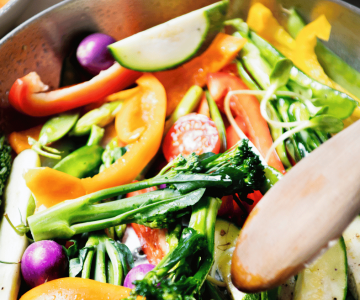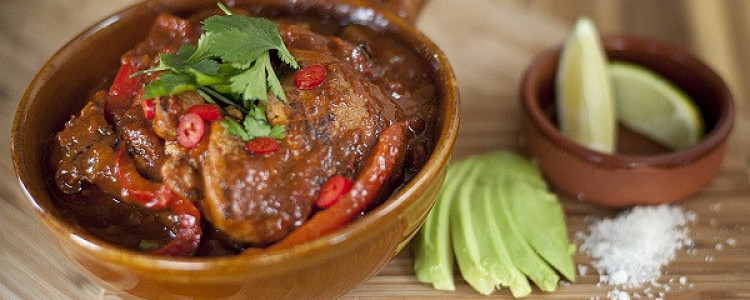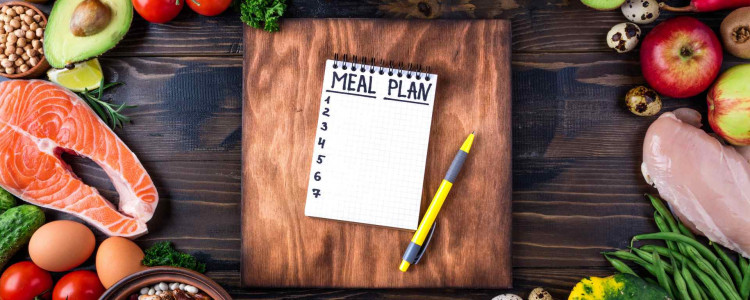
Win. Don’t Bin: Simple steps to reducing your food waste
Did you know that over 1.5 billion tonnes of food is wasted
each year globally? That’s one-third of all food intended for human consumption
– and not only that, but food waste is also the culprit of between 8-10% of all
global greenhouse gas emissions. Tackling this alarming statistic requires us
to all take action in our own homes, as this is where 70% of food that is
wasted in the UK occurs. Despite our best intentions, it can be easy to fall into
poor food waste habits, so we’ve taken inspiration from this year’s Food Waste
Action Week to help you make best use of your leftovers so that together we can
‘Win. Not bin’!
Here are some top tips on how to keep sustainability and
minimum waste at the heart of the food you eat…
Tray bakes and batch cooking are your best friends
Versatile and easy to prepare, tray bakes are a great way to
use up your leftovers and reduce food waste in your home, particularly if you
have a lot of leftover veggies, meats or grains stacked in your fridge or
pantry. You may well discover delicious combinations of food you’ve never tried
before. You can also fuse the old and the new by adding some fresh herbs and spices
to add a zing to your traybakes. If you want to add even more freshness to your
leftover traybakes, try out a dressing such as lemon juice and zest, olive oil,
mustard and garlic – with freshly ground black pepper and salt, of course! Brush
this mixture over your traybake once it’s out the oven, so it feels less like
you’re merely eating the last scraps from your fridge!
Batch cooking is another useful technique to make sure your
ingredients don’t go to waste. Save time and money by cooking in bulk before
freezing – you’ll also have a convenient supply of home-cooked meals on hand
for busy days in your home.
Plan ahead and buy only what you need
Take inventory and have a quick check in the fridge every
day to plan meals around food that needs to be used first. That includes those
foods hiding at the back of your fridge! Check the use-by dates and see whether
your food can be frozen if it cannot be eaten in time. While delicious and nutritious,
berries tend to quickly (and peskily!) go off since they’re water-rich and
delicately skinned. So, if you know you’re not going to use them in one go,
consider popping them in your freezer along with any other food that’s nearing its
use-by date.
After you’ve checked the fridge, make a shopping list or look
back on your past Daily
Essentials or Best
of Local orders to make it easier to keep track of everything you need, and
avoid overbuying food that will simply go to waste.
Don’t forget to put it in your compost bin
For the leftovers that you don’t get to make better use of, it’s important to remember to dispose of them in your green compost bin, rather than putting them in your regular rubbish bin. Food waste that ends up in landfill sites produces harmful methane gas as it decomposes, contributing to climate change. By using your green compost bin, you can help reduce the amount of food waste that goes to landfill. Not to mention, this will be used to create nutrient-rich compost that can be used to support healthy plant growth – double win for the planet! To help you remember to use your green compost bin, dedicate a smaller bin in a prominent and accessible location in your kitchen to make a habit of disposing of food waste the environmentally friendly way. Here is Manchester City’s Council list of things you can put in your green compost bin:
- Meat and fish bones
- Raw and cooked food
- Tea bags and coffee grinds
- Egg shells
- Grass cuttings, hedge
clippings, twigs and branches
And don’t forget that food
waste should be put in compostable bags. Manchester City Council even supplies
compostable bags here.
By collectively taking small
steps like these, we can all play a role in reducing our food waste and
protecting our environment year-round.




